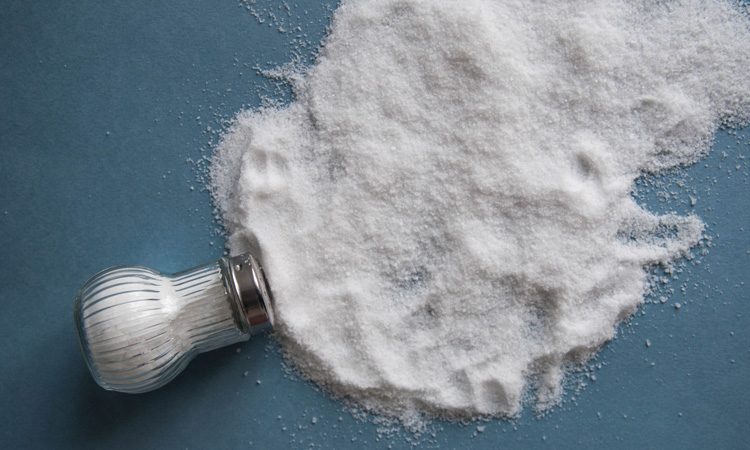Action on Salt calls for robust salt reduction programme
- Like
- Digg
- Del
- Tumblr
- VKontakte
- Buffer
- Love This
- Odnoklassniki
- Meneame
- Blogger
- Amazon
- Yahoo Mail
- Gmail
- AOL
- Newsvine
- HackerNews
- Evernote
- MySpace
- Mail.ru
- Viadeo
- Line
- Comments
- Yummly
- SMS
- Viber
- Telegram
- Subscribe
- Skype
- Facebook Messenger
- Kakao
- LiveJournal
- Yammer
- Edgar
- Fintel
- Mix
- Instapaper
- Copy Link
Posted: 8 November 2019 | Sam Mehmet (New Food) | No comments yet
Action on Salt has responded to the National Food Strategy, stating that in order for lives to be saved, government must enforce a salt reduction programme immediately.


The BMJ has cited the campaign to reduce salt as an example of self-regulation failure.
Action on Salt, based at Queen Mary University of London, has responded to the Henry Dimbleby, lead non-executive board member of the Department for Environment, Food and Rural Affairs (Defra), National Food Strategy, with a warning to government that if lives are to be saved, a robust salt reduction programme must be enforced without further delay.
The group has delivered an evidence-based plan to inform this first major review of the UK food system in almost 75 years. The recommendations have been adapted from the previous policy devised by the Food Standards Agency (FSA), which resulted in a reported 20-40 percent reduction in the salt content of many food products between 2003 and 2011.
Key elements of Action on Salt’s proposal include:
- Setting gradual, achievable and progressively lower salt targets for different categories of food for all food industry to follow, including the Out of Home (OOH) sector, with a clear and feasible time frame. The recent Green Paper highlights that the proposed salt reduction targets for 2023 will only cover the main contributors of salt intake. However, it is imperative that the Department of Health and Social Care (DHSC) continues salt reduction across all processed food containing added salt, including new categories that do not currently have a target.
- Mandatory annual, transparent monitoring reports to enable accurate tracking of food industry progress, inform policy and maintain momentum.
- Fiscal measures such as levies on industry to be applied to the main contributors of salt to the UK diet, including categories such as processed meat in order to drive reformulation. PHE’s 2018 analysis highlighted that only 43 percent of meat products had met their targets, but the category contributes over 25 percent of daily salt intake in adults.
- Mandatory front of pack traffic light labelling, plus a review of labelling in other countries in terms of evaluating and measuring impact.
- Renewed focus on public awareness for salt as part of its Change4Life campaign. Since 2009, there have been no national messages on the importance of reducing salt in the diet.
- Regular 24-hour urinary sodium analysis to measure population salt intake in order to evaluate the effectiveness of a salt reduction policy. Measurements must take place at regular intervals (every two-three years) to track progress and inform policy.
- DHSC to release guidelines to recommend use of potassium salt. A review by SACN and CoT has deemed the use of potassium salt in food to be safe for general consumption, with the benefits having a large impact at the population level. Therefore, in the few food categories where salt reduction still proves to be challenging, replacement of salt with potassium salt should be encouraged as a short-term measure.
- Stricter salt reduction targets for the OOH sector, aligning them with retail targets. This should include a mandatory target of 1g/100g for all bread products sold both in retail and out of home, to help bring the OOH sector in line. Progress must be monitored by local authorities who will be responsible for providing adequate guidance for SME’s to engage with reformulation programmes and obtain advice from experts in food innovation and technology.
- OOH sector should be required to provide nutrition information online with a phased approach to providing that information at the point of sale. If this is not done voluntarily, then a thorough review on menu labelling by the DHSC should be carried out, with high salt warning labels on all dishes with more than 5g of salt per portion – along with a lower threshold for children’s meals if the OOH sector does not engage with voluntary salt reduction.
“Reducing salt is by far the simplest and most cost-effective public health measure to improve health and reduce incidence of cardiovascular disease, as evidenced on a global scale. The deaths that have occurred due to inaction, which would have been largely preventable, is a tragedy for public health, and accelerates the urgent need for salt reduction. The Secretary of State for Health must now commit to setting new and ambitious salt targets for 2020, with strict monitoring mechanisms to ensure all members of the food industry comply,” said Graham MacGregor, Professor of Cardiovascular Medicine at Queen Mary University of London and Chair of Action on Salt.
Sonia Pombo, Campaign Manager for Action on Salt, added: “Our research has shown time and time again the large variation in salt content of similar foods, proving reformulation is easily achievable without compromising on taste. Eating too much salt puts us at risk of suffering from heart disease or stroke, which is of public health concern as many of us eat much more salt than the recommended limit of 6g per day, with salt intake in the UK averaging 8g per day. The challenge facing consumers is that many do not realise they have a high salt diet because the majority of it is already added to everyday foods. Clear labelling on front of packaging and on menus will help customers make a more informed choice.”
Related topics
Health & Nutrition, Regulation & Legislation, Salt, The consumer
Related organisations
Action on Salt, Department for Environment Food and Rural Affairs (Defra), Food Standards Agency (FSA)









